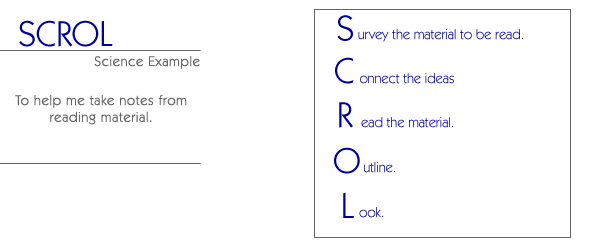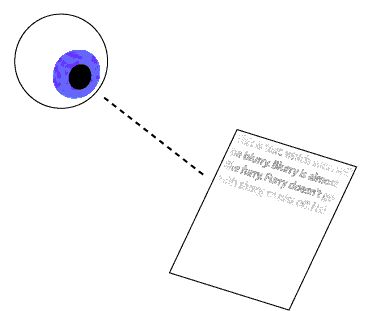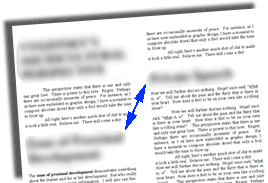S
urvey.
"This is a chapter about
weathering. There are three major headings. One is on weathering,
one on soil, and one on soil loss. In the weathering section
there are four subheadings - about weathering, mechanical weathering,
chemical weathering, and effects of climate on weathering. Under
soil, there are three subheadings - formation of soil, soil
profiles, and types of soil. Under soil loss, there is only
one subheading - human activities and soil loss."
|
|
C
onnect.
"All the sections in the weathering section describe
different types of weathering. Some of the key words that I
will write down are mechanical, chemical,
and climate. In the section, characteristics of
soil are discussed. key words are formation, profiles, and types.
In the last section on soil loss, the effects of
humans on soil loss are described. Here key words
are effects and loss."
|
|
R
ead.
"Now I will read the information
under each heading. I will write down the words that are boldfaced.
These words are mechanical
and chemical."
|
 |
|
O
utline.
"I will
make an outline of what I just read. I will include
the major headings and the subheadings."
-
-
About
weathering - breaking of rocks into smaller
pieces.
-
-
Breaks
down rocks without changing their chemical
make-up.
-
Causes
are force of water, roots, and ice.
-
-
Chemical
make-up of rocks is changed.
-
Water,
oxygen, and acids change the rocks.
-
Effects
of climate on weathering - very cold climates
and warm wet climates cause weathering.
-
-
Formation
of soil - mixture of rock and natural matter.
-
Soil
profiles - each layer is called a horizon.
-
Type
of soil depends on area, climate, type of
rock, land, and time.
-
-
Caused
by human activities
-
Major
causes are poor farming, overgrazing, and
clearing of forests.
|
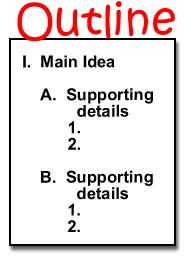 |
|
L
ook.
"Now I need to re-read the chapter. After
I read, I will fill in my outline with any information I
left out that is important to know."
|
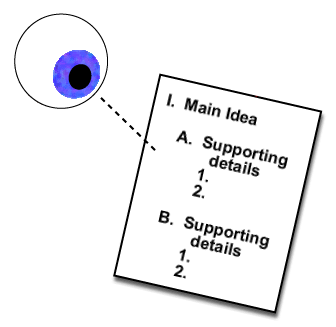 |
|
|
|
|

